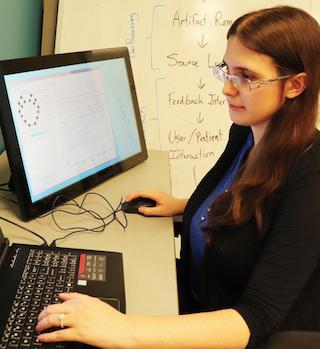 As the opioid epidemic continues to devastate the United States both state and federal agencies are turning to digital health innovators to look for solutions. Most recently, Ohio has hosted the first round of the Ohio Opioid Technology Challenge, which brought innovators from across the country to the state. All of the winners of the first phase used digital health to address the crisis.
As the opioid epidemic continues to devastate the United States both state and federal agencies are turning to digital health innovators to look for solutions. Most recently, Ohio has hosted the first round of the Ohio Opioid Technology Challenge, which brought innovators from across the country to the state. All of the winners of the first phase used digital health to address the crisis.
Ohio is one of the hardest hit states when it comes to the opioid epidemic. The rate of overdose has increased by 30.8 percent from 2015 to 2016, according to Center for Disease Control statistics. In 2016 Ohio recorded 4,050 overdose related deaths, with 58.2 involved fentanyl and related drugs, according to the Ohio Department of Public Health.
"Ohio put out the call for new ideas and people from across the world responded," David Goodman, director of the Ohio Development Services Agency and chair of the Ohio Third Frontier Commission, said in a statement. "This issue affects countless individuals, families, and communities, so we're thrilled by the level of response and excited to move these ideas forward and save lives.”
The ideas proposed ranged from an augmented reality-based interactive coaching system by Kinametechs to an opioid risk assessment screening app by InteraSolutions.
One of the winners, Judson Brewer, presented a digital therapeutic idea, which centered around the psychological theory of mindfulness. The idea for the opioid therapeutic comes out of the smoking cessation app that Brewer and his team developed, called Craving to Quit, which combines mindfulness training and peer support.
"With the success of Craving to Quit for smoking, we have helped to usher in a new wave of first-line treatments for behavior change," Brewer said in an email to MobiHealthNews. "With this, we now have a digital platform that can efficiently be adapted to other types of addictions, as they all share the same core addictive loop."
Digital therapeutics seem to be a growing area in treating opioid addiction. In fact, Pear Therapeutics’ reSET-O, a digital therapeutic that is specifically designed to treat people recovering from opioid addiction, recieved an Expedited Access Pathway designation from the FDA in October.
But the innovations at the Ohio competition weren’t all focused on treatment. The Boston-based Edification project focuses on prevention. The startup plans to use virtual reality to teach school aged children about the dangers of using opioids and other drugs.
“It is almost like the ghost of Christmas future,” Murray told MobiHealthNews earlier this month.
This competition comes after Ohio Governor John Kaisch called for Ohio Third Frontier funding to accelerate scientific and tech breakthroughs to combat the US opioid problem. The state committed $20 million to advance new ideas and find tech-based solutions. This multiphase competition plans to leverage $8 million of that funding, according to a press statement.
The five winners of the first phase each received $10,000 in prizes. More prize money will be handed out the next round.
In December, the United States Department of Health and Human Services hosted a code-a-thon to address the opioid crisis, which hosted more than 50 innovators from across the country. The competition had three categories: prevention, treatment and usage trackers.
“We are teaching the department that there are all these people around the country that are willing to help out and it is was important for us to address this problem with humility,” Bruce Greenstein, chief technology officer at HHS, recently told MobiHealthNews. “Basically we are saying we need help and we reached out to the tech, innovation, and data community.”
As for the Ohio competition, the second stage of the competition, called the "Challenge Phase," will start in late February and run through July. The winners of the final stage of the competition, called the "Product Phase," will get funding to refine and cultivate their idea into a product. There will be at least $6.5 million avilable in the prize pool for the Challenge and Product phases, according to the challenge webpage.
“We’re hoping that these ideas become the solutions for tomorrow,” Goodman said in a statement. “Making advancements in technology is one more way to ensure we leave no stone unturned.”




















